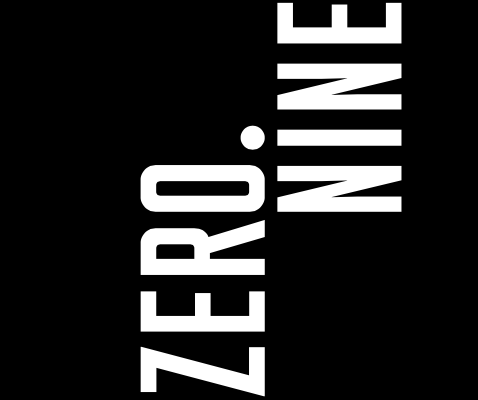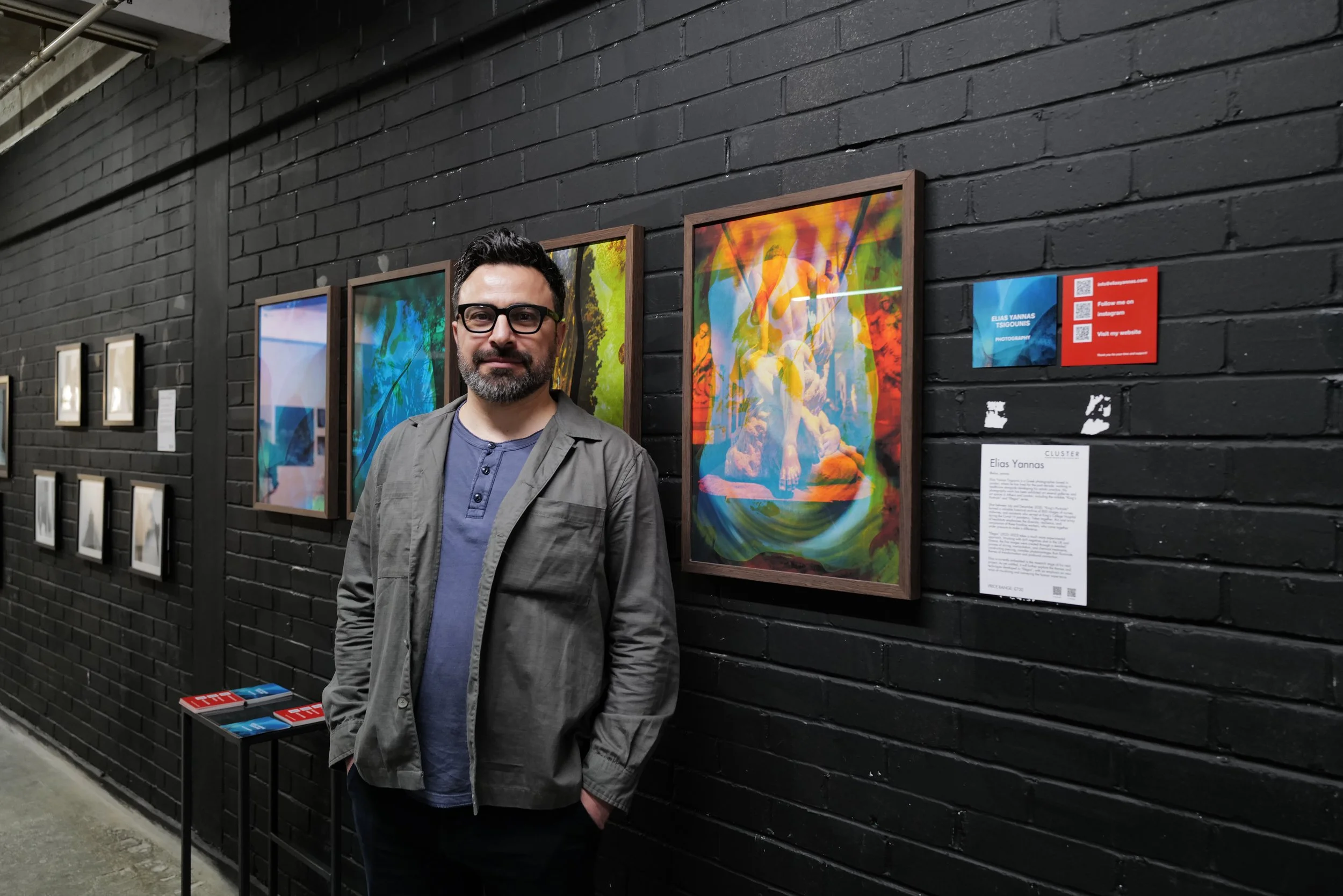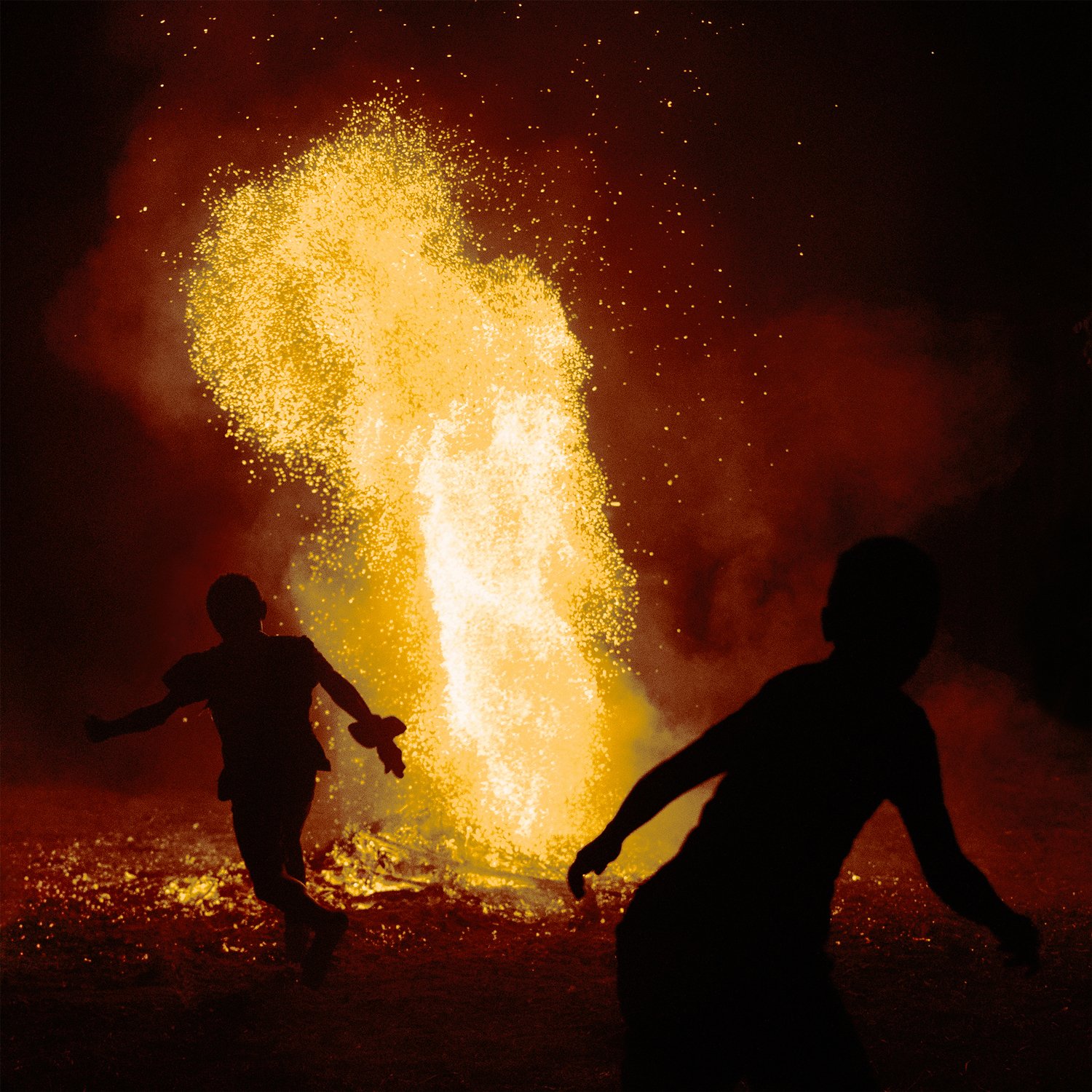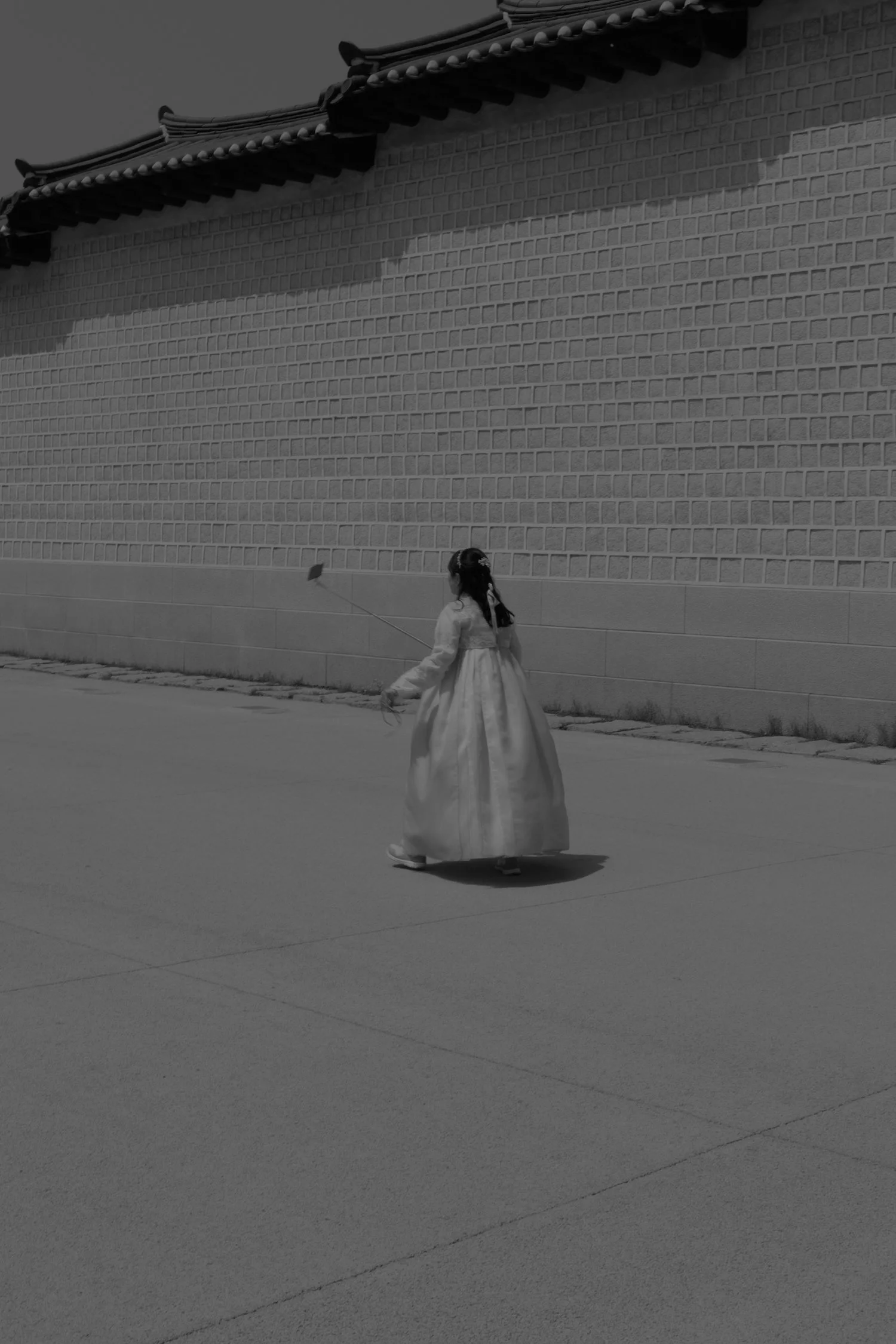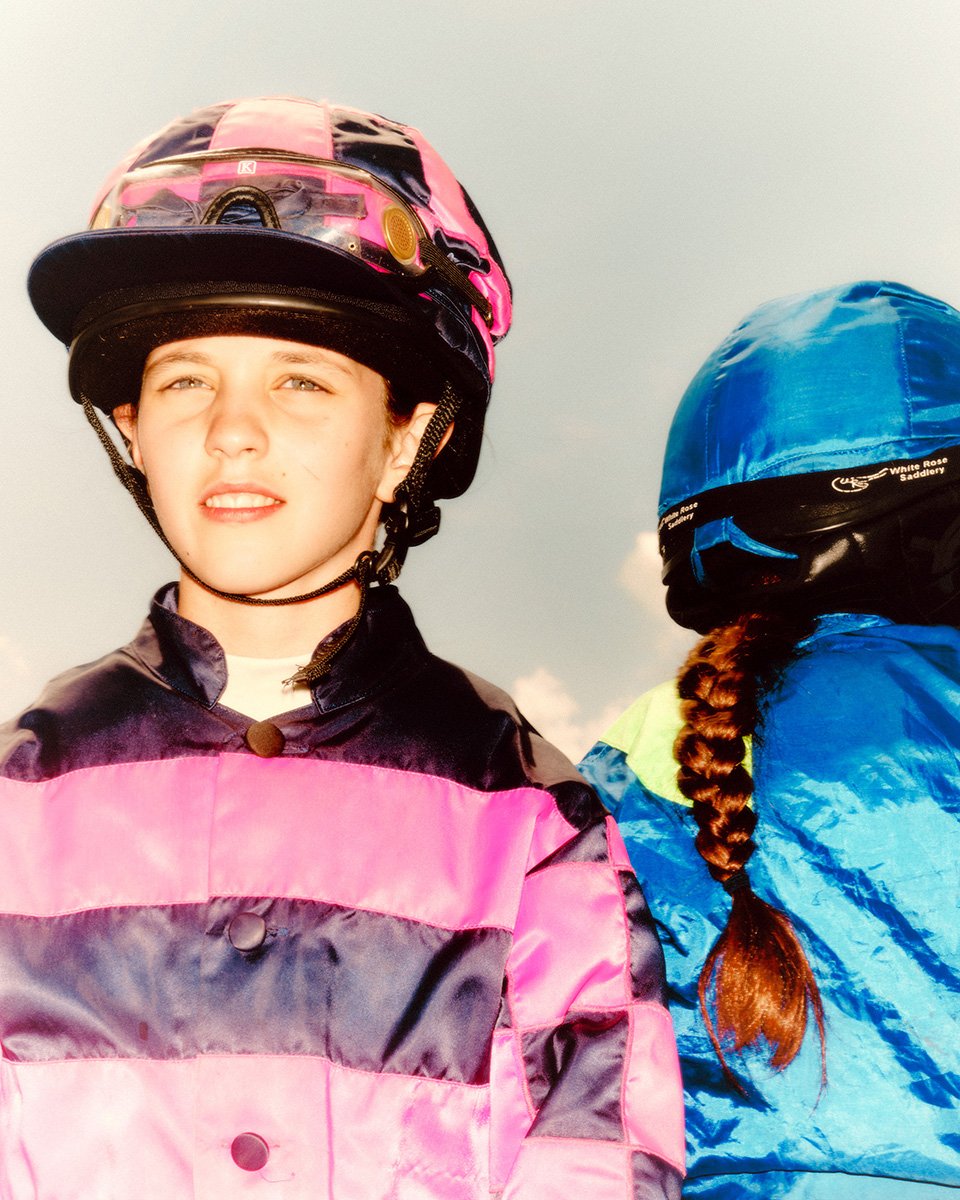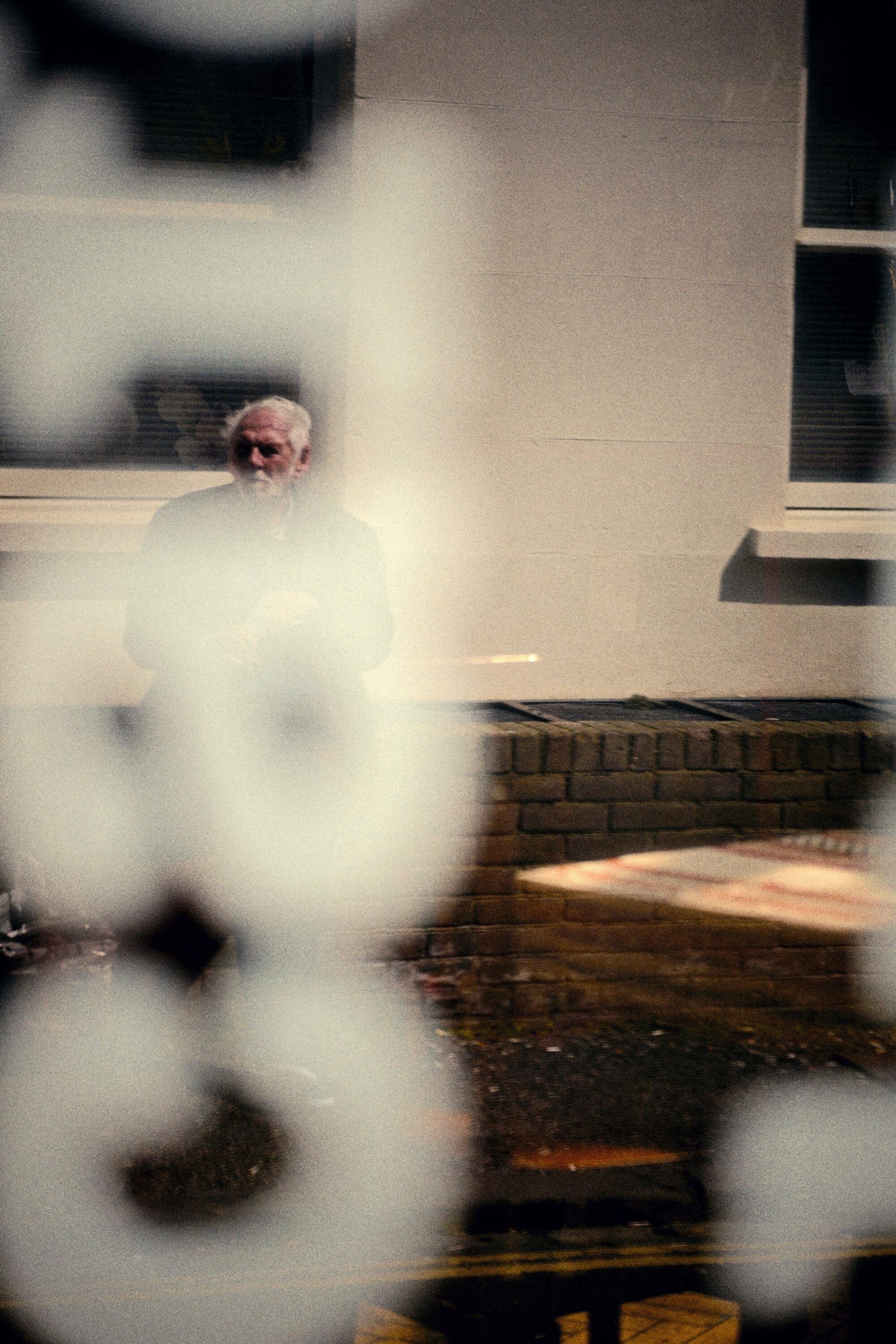Elegos
Elias Yannas Tsigounis is the winner of the inaugural ZERO.NINE Award, selected at the Cluster Photography & Print Fair 2025. His series Elegos focuses on Elias’ understanding of death as a transformative experience, following his attempt to understand his father’s passing. Elias’ work is dreamlike and abstract, but there is a physicality to the construction of these images that set his work apart. We spoke to Elias about what his work means to him.
Interview Holly WycheColours bleed, forms distort, and memories collide in Elegos, an experimental photographic series that explores the enduring human effort to find coherence and meaning in transformative experiences that fracture or otherwise profoundly alter our lives.
Named after the ancient Greek word for a song or poem of mourning, the original inspiration for the series was the process of navigating the emotional landscapes of loss following the loss of my father. Over time, though, the project took on a more universal framing, responding instinctively to the methodology to broaden into themes of metanoia and meaningful connection.
Hi Elias, it’s great to chat with you. The title of your work is Elegos, could you tell me what meaning that word has to you?
‘Elegos’ in ancient Greek is a song of mourning. Usually, we hear about elegies in music, but for this project I wanted not to give an elegy, I wanted just to make something small, comprehensive and personal as well.
I'm Greek, so I’ve had great inspiration from Greek culture and ancient Greek history. That was part of my research and I wanted to make something that expresses my feelings for that. Elegos, first of all, is a project about lost memory and reconnection with memory.
Those Greek inspirations are obviously a major component of the work. Is there anything else personal that was an inspiration for this series?
Usually, in my projects, I use personal experience, and with my photography, I try to convey what is inside, out. In the moment that I started Elegos, inside was the pain of loss, or the loss of my father. So I felt that I had to deal with that. It was a kind of mourning about that loss.
The theme of the festival is metamorphosis. Where do you feel metamorphosis play a part in this series and why is it important to you?
I think some experiences in life have the power to transform us. Like the loss of my father, or any loss that we can have in life, has the power to rearrange the mental images that we have. What was once the identity of one thing is something else now.
And the whole process is a metaphor of the experience that one is going through when he or she is going through a loss.
And you mentioned that you were influenced by Pictorialist and Modernist approaches to photography. What specifically about these movements spoke to you?
I wanted the project to convey something, the human experience, but it was not easy to find a way to do that. But through my research, I found out that the Pictorialist process and Modernist movement helped me to create and convey what I had in my mind. So I wanted to present something with aesthetics and that is also experimental.
“I wanted not to give an elegy, I wanted just to make something small, comprehensive and personal as well.”
It is quite an experiment compared to prior work. You said that the work creating these photographs was deconstructive, involving slicing, manipulating images and chemical treatments. What exactly were these chemical processes and how did you use them in this?
First of all, I took pictures in 6x9 medium format camera. The pictures were taken in the places where I have lived while my father was alive in Greece, and after when I moved to UK. It is the two spaces where I have experienced the father and the loss of the father.
These images were manipulated. I cut them; I sliced them. And due to my experience as a healthcare professional, I used medical equipment to do that, like a scalpel. During that process I deconstruct what was once one photo into different pieces and through the process of I deconstruct what once was one. I then have everything whole in a whole new form inside me. So that's why the whole process is a metaphor of what I have experienced or what one might have experienced as well.
You do come from a healthcare background and your prior series was about nurses during COVID. Do you think that your medical background has played any more into this?
In my life, my projects are all informed by my personal experience. So working in a hospital is a personal experience as well, it influences how I see life, how I interpret life, and how I take subjects from that part of my life to create.
I was also wondering if you could speak more about “Metanoia” as a concept, you raised it in relation to the inspiration behind your piece.
There are some experiences, like the loss of the father, but there are many other experiences that we go through in life that have the power to change. So, metanoia is about change, profound change.
I believe also that because the whole project has to do with experience leading to something new. There we have a metamorphosis. I'm another person, It's me but I’m not the same.
Do you think you’ll use the processes you’ve discovered in this piece in further work? What do you think is next?
I found this technique very interesting and very expressive, so I would like to see how I will be able to apply this technique in a new subject. I will continue. There are actually some ideas that have started working and research that I will present later this year.
That’s so exciting, we can’t wait to see them. It’s been a pleasure chatting.
Elias at the Cluster Photography & Print Fair 2025. Photo: Christian Trippe
About Elias
Elias Yannas Tsigounis is a Greek photographer based in London, where he has lived for the past decade, working in healthcare alongside developing his artistic practice. His photography work has been exhibited art several galleries and art spaces in Athens and London, including the notable King's Portraits and Elegos series.
Shot between July and December 2020, King's Portraits formed a valuable historical archive of 800 images of nurses, midwives, and assistants who served at King’s College Hospital during the COVID-19 pandemic. Taken together, this vast array of headshots emphasises the diversity, resilience, and compassion of these frontline workers, who came together under pressure to make a difference.
Elegos (2022–2023) takes a much more experimental approach. Working with 6x9 negatives shot in the UK and Greece, the five images were created through a detailed process of slicing, manipulation, and chemical treatments, constructing piercing, complex photomontages that illuminate themes of transformation and profound connection.
Elias is currently engaged in the research stage of his next project. As yet untitled, it will further explore the themes and techniques developed in “Elegos”, with an emphasis on new ways of visualising and conveying the human experience.
To see more of Elias’ work, visit his website or follow him on Instagram
